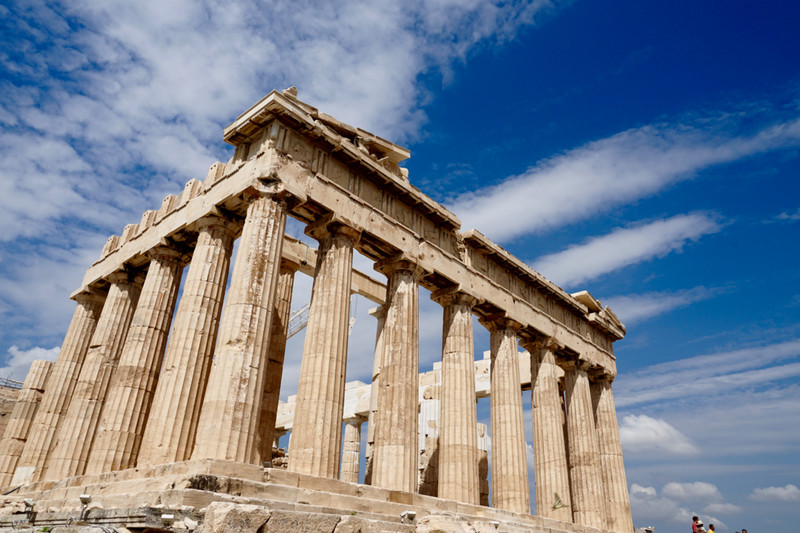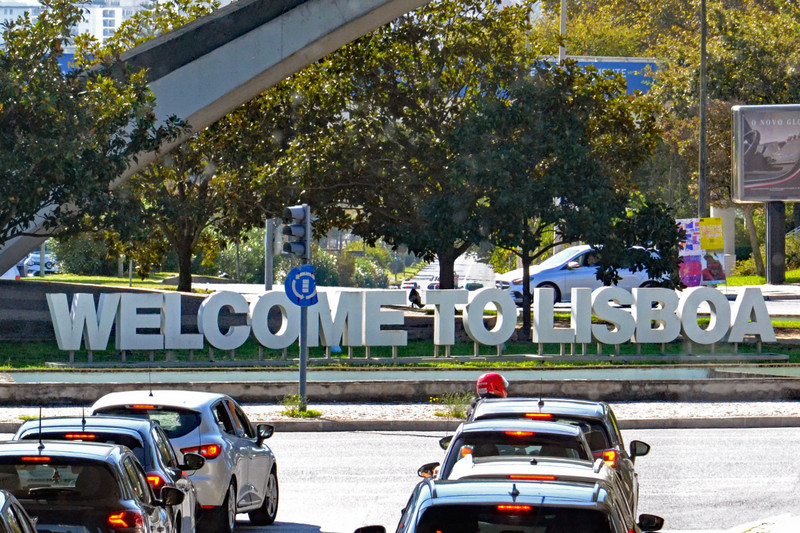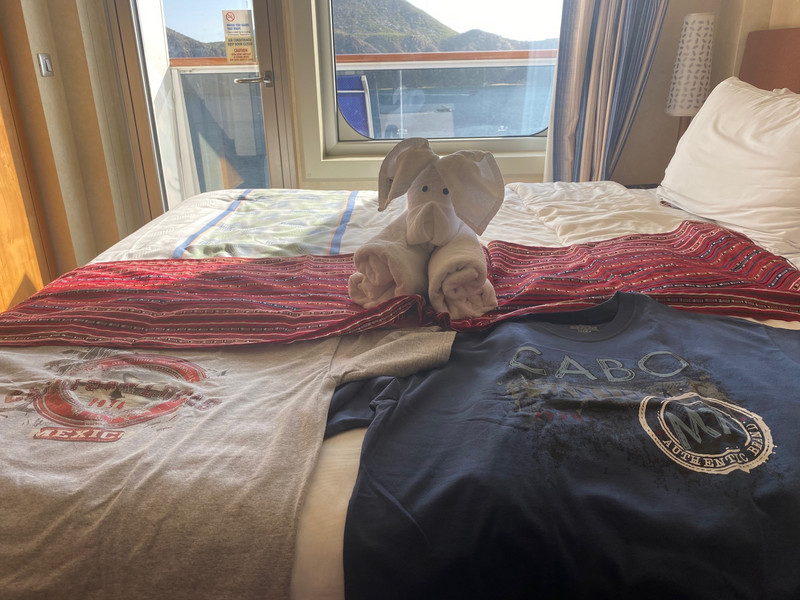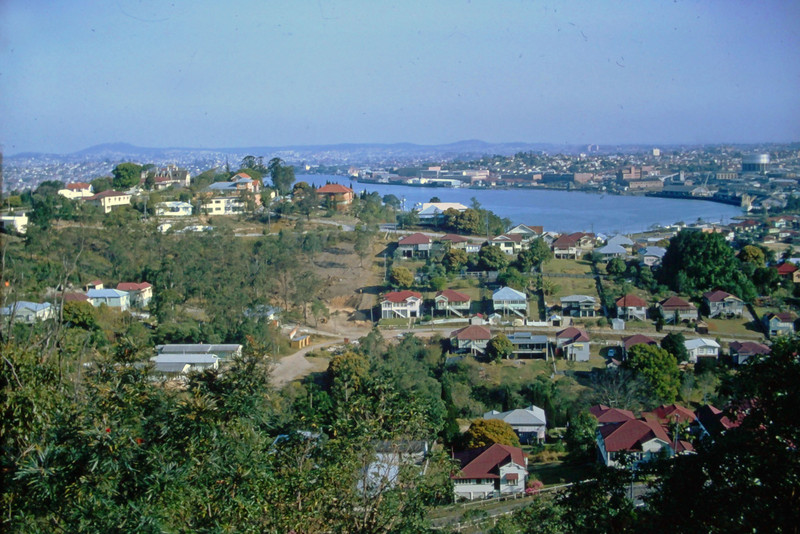This morning weve booked a mythological tour of Athens highlights. Im not sure exactly what this means, but Issys sensing a lot of ancient temples so elects to stay in bed. Im a bit surprised shes let me venture out on my own. She said last night that I shouldnt go out after dark by myself given that we seem to be staying in the middle of the red light district. I wasnt quite sure whether that was because she thought I might get mugged or because she was afraid I might accidentally get lured into one of the strip clubs. Anyway most of them seem to be closed at 8am this morning, not of course that I was taking all that much notice
Our guide introduces himself as Evan. He says that this is short for Evangalitis, but the only people whove ever called him that were his mother and angry school teachers. He tells us that he studied European history in Athens and then as an exchange student at Cologne in Germany.
First cab off the rank is the Temple of Olympian Zeus and the adjacent Hadrians Arch, both of which we stopped by briefly during our
wanderings last evening. We quickly learn that theres going to a heavy emphasis on mythology during the tour. Were told that Zeus was the king of the Twelve Gods of Mount Olympus, and although there seem to be several versions of most Greek myths, all of them seem to acknowledge that he was the original serial womaniser. There seems to be significant crossover between myth and history. Until as recently as the late nineteenth century, the Trojan War had apparently been regarded as entirely mythical. Then in 1871 archaeologists unearthed the remains of the actual city of Troy in western Turkey. On a similar note there are many references in Ancient Greek mythology to a great flood, and the stories seem to bear a striking resemblance to those of Noah and his ark. In the Greek mythological version, Prometheus (a Titan, or pre Olympian god) advised his son Deucalion to build a small boat, and when the flood came he and his wife Pyrrha floated around for nine days while everyone else perished. They eventually came to land on Mount Parnassus 100 kms or so north west of Athens.
iconic Acropolis. It sits on a massive flat topped rocky outcrop above the city, and dominates the skyline. It includes the remains of a number of ancient buildings, the most significant of which is the Parthenon. Were told that construction of the buildings we can still see the remains of today were coordinated by a gent named Pericles in the fifth century BC.
Its a bit hard not to notice that the entire Temple of Olympian Zeus and large sections of the buildings on the Acropolis, including the Parthenon, seem to be clad in scaffolding. I know its a long time ago, but Im sure Ive got black and white pictures of all of this lot from my visit here with my parents way back in 1964, and from memory there was no sign of any scaffolding in any of them. And it seems Im right. Evan tells us that the repairs to these structures have been ongoing for somewhere around forty years, so since the 1980s. He says he finds this a bit frustrating, as forty years is thirty three years longer than it took to build the Parthenon originally. He says hes now very jealous that I
came here at a time when visitors were free to trample all over the inside the Parthenon, which is roped off and out of bounds, as it should be. He says he was allowed in there once when he was training to be a guide, as the powers that be insisted that he had detailed knowledge of every square inch of all of the Acropolis structures. I thought he might have been pleased about this, but it seems they made him and his fellow guides earn their stripes; they were made to spend three days up here in the middle of summer without a break, which he says was tortuous. Tour guide school sounds like a tough gig.
Being up on the Acropolis almost feels like a visit to the cradle of modern civilisation. The Parthenons clearly the big ticket item, but by no means the only item.









